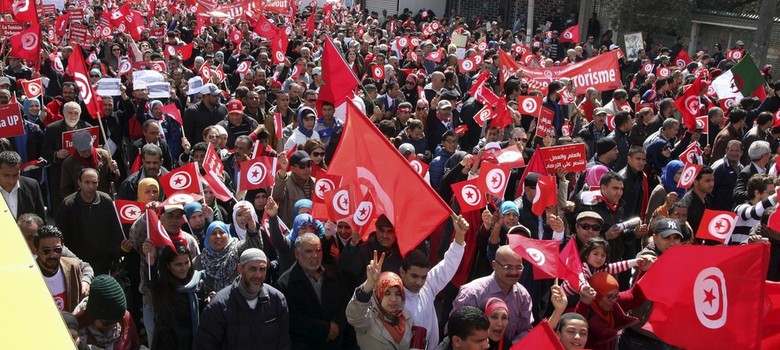Tunisian President Kais Saied said on Wednesday that he plans to move the official anniversary of Tunisia’s revolution from January 14 to December 17, suggesting that the revolution is far from over.
The Tunisian revolution began on December 17, 2010, when an unknown street vendor, Mohamed Bouazizi, set himself on fire in the Sidi Bouzid province following the confiscation of his fruit cart and public humiliation by government officials. The incident triggered widespread protests in Tunisia, known as the Jasmine Revolution, and acted as a springboard for the wider Arab Spring protests across the Middle East.
Also Read: A Decade After the Success of the Arab Spring, Is Tunisia Following Egypt’s Path?
The protests sparked public anger against then Tunisian dictator Zine El Abidine Ben Ali, who was ousted on 14 January 2011 after 23 years in power. January 14 was officially recognised as a national day marking the end of Tunisia’s dictatorship and its path towards democracy.
However, Saied has stated that even though the revolution ended the country’s longstanding dictatorship, the new rulers were not so different from the previous one. He has frequently alleged that several Tunisian parties, especially the Islamist Ennahda Party, are a danger to the future of Tunisia and accused them of “seeking to sow chaos and disorder in the country.”
In this respect, Saied said that the change to December 17 is meant to underscore the fact that the revolution has not ended. “Unfortunately, the revolution was usurped,” Saied said on Thursday. “The people were even prevented from expressing their desires and slogans,” he added, blaming certain parties for not working in the interests of the Tunisian people.

In July, Saied dismissed the country’s Prime Minister (PM), indefinitely suspended the parliament, lifted the immunity of all lawmakers, and said that he would appoint a new PM. The decision was condemned by the opposition, who called it a coup. The Ennahda Party said it was “unconstitutional, illegal, and invalid” and that it marked a “return to dictatorship.”
Saied quoted Article 80 of the Tunisian constitution to justify his actions. As per the Article, in the “event of imminent danger” to the Tunisian republic, the President “may take any measures necessitated by the exceptional circumstances.” It adds that the President should consult with the PM and Speaker of Parliament before taking any action and that any such measures must ensure “a return to the normal functioning of state institutions and services.”
In late September, Saied appointed Najla Bouden Romdhane as the country’s first female PM and tasked her with forming a new government. However, the President seems to have lost the initial momentum he had while suspending the parliament in July, which was backed by thousands of Tunisians. A recent poll conducted by Tunisia’s Emrod Consulting shows that Saied’s popularity fell by 10% in November; public satisfaction with his policies dropped to 72% in the same month.

